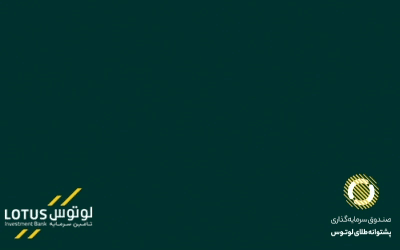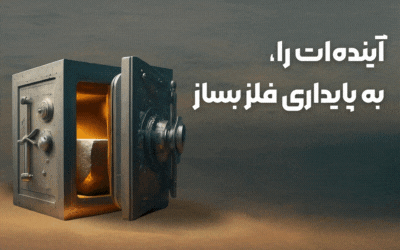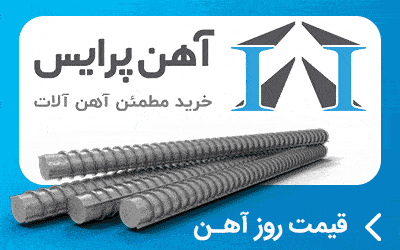Pars Kayhan Company The first Iranian contractor of Iraqi Ministry of Oil
Pars Kayhan is among the Iranian companies which have carried out various projects both inside and outside the country successfully. The company has a number of projects in hand, as well. Particularly in Iraq, Pars Kayhan Company is implementing large and important projects.
In the Iranian calendar year ۱۳۹۱ (March ۲۰۱۲-March ۲۰۱۳), the company prepared a plan for developing its activities in Iraq. The company was the first and the sole Iranian company which was qualified by the Oil Company of Iraq and participated in Iraq's international tenders.

Pars Kayhan is among the Iranian companies which have carried out various projects both inside and outside the country successfully. The company has a number of projects in hand, as well. Particularly in Iraq, Pars Kayhan Company is implementing large and important projects.
In the Iranian calendar year ۱۳۹۱ (March ۲۰۱۲-March ۲۰۱۳), the company prepared a plan for developing its activities in Iraq. The company was the first and the sole Iranian company which was qualified by the Oil Company of Iraq and participated in Iraq's international tenders. Pars Kayhan Company has so far won three international tenders.
Importance of the issue is understood when it is said that the work has been done by a company of the private sector without benefiting from government supports. Mostafa Rezaei Saravi is the Managing Director of Pars Kayhan Company. He was born in ۱۹۶۲. He was graduated in electrical engineering from Iran University of Science and Technology (Elm-o Sanat) in ۱۹۸۸.
He has worked as designing engineer, site superintendent, commissioning manager, and project manager both inside and outside the country. Since ۲۰۰۰, he has been working as the manager of Pars Kayhan Company. In an interview with Donya-ye Eqtesad, he expounded on difficulties of working overseas. He urged officials to provide domestic contractors with more facilities and streamline laws for exporting technical and engineering services.
Mr. Rezaee, would you please brief us about the establishment history of Pars Kayhan Company and its implemented projects?
Pars Kayhan Company was established in ۱۹۹۱. After implementing a number of projects, it was reorganized in ۲۰۰۰ and focused on implementing engineering, procurement and construction (EPC) projects in the fields of oil, gas, energy, and power plant. To date, the company has carried out many projects in these fields.
Implementing a project for establishing four oil storage facilities, each with a capacity of one million barrels, in Kharg Island, is among the most important projects of the company. The project is currently passing its final stages. The oil storage facility is one of the biggest of its kinds in the country. The project is complete by ۹۰ percent while the country is suffering from instability of foreign currency exchange rates and in a situation that the international sanctions have stopped implementing many of the national projects. The project is one of the most successful and notable projects which are being carried out in the country.
Increasing the capacity of Tehran Refinery's cooling system and crude oil discharge system, boosting the capacity for increasing imports and exports via Shahid Rajaee port, establishing strategic storages at oil transfer centers and hubs, and implementing a utility project in Kermanshah Petrochemical Complex were other important projects of the company in the oil and gas field.
In the field of energy, Pars Kayhan Company implemented projects to launch mechanical and electrical systems in Abadan, Damavand, Parand, Sanandaj, and Orumieh power plants. Abadan gas fired power plant is the first power plant in the country which has been established by the private sector in EPC method.
The company started a plan in ۲۰۱۲ for developing activities in Iraq. The company was the first and the sole Iranian company which was qualified by the Oil Company of Iraq and participated in Iraq's international tenders. Pars Kayhan Company has so far won three international tenders. Importance of the issue is understood when it is said that the work has been done by a company of the private sector without benefiting from government supports.
You did mention to Pars Kayhan Company's activities in Iraq as the first Iranian contactor in the oil sector. What projects are currently underway in Iraq?
The company has three projects in hand in Iraq. One of the projects is underway in the city of Al Faw in Basra province. The project is aimed to boost soil resistance for establishing oil storage facilities in Mixing Soil Deep method. The method for improving ground characteristics in depth has not been implemented before in Iran. But, we managed to win the tender in a competition with foreign companies. Such a project is carried out for the first time in Iraq.
Another project is aimed to set up and equip nine oil storage facilities in Basra and Naseria refineries. The employer of the project is one of the state-run subsidiaries of the Iraqi Oil Ministry. The project is currently in the designing stage. Designing and establishing a Trap Scarper system as well as controlling taps along the pipeline from Abu Ghoraib to Anbar is another project of the company in Iraq.
How much money did you earn from conducting projects in Iraq?
Financial gains of implementing projects in other countries are materialized in two ways. A portion of it is realized through spending on purchasing goods or processing goods inside the country, and the other portion is realized as foreign currency revenues.
Of course, the two portions of the subject are of the same quality, because spending money inside the country for implementing projects outside the country through buying goods from Iranian sources and building establishments by domestic manufacturers as well as employing Iranian laborers in the projects means gaining foreign currency revenues.
Revenues of this sector are largely dependent on capability and influence of Iranian contractors in other countries and their placement in the vendor list of Iraqi employers. For the time being, the projects are estimated to be profitable by ۳۰ percent based on the abovementioned definition.
How many jobs have been created so far by Pars Kayhan Company?
Some ۳۰۰ persons are working directly in Pars Kayhan projects and some ۵۰۰ persons are working indirectly in projects which have been transferred.
Are there any bottlenecks or problems facing the company's activity outside the country? How do you see cooperation and interaction with other companies which are active in Iraq?
Working in other countries has its special problems, the most important of which is the competition in the international level. Therefore, countries prepare facilitating laws in order to boost exports of technical and engineering services.
As you referred to foreign currency income, it is natural that foreign currency income, job creation, domestic production support and like that should be among main policies and programs of the government. This should be the most important incentive for offering facilities to technical and engineering services, but unfortunately this does not always happen.
One of the main problems is to provide bid bonds for tenders and projects. The problem has been more acute considering that the Iranian banking sector is suffering from the international sanctions. Providing bid bonds costs companies dearly, so that Iranian contractors should pay for both guarantee and counter guarantee.
Meanwhile, we have faced the problem of satisfying some domestic government organizations regarding our capability and potentiality to carry out the projects when it comes to receive special approvals for implementing projects outside the country. This is a duty of organizations in the host country - Iraq for instance - not a duty of Iranian government organizations.
Moreover, we expect to benefit from consultations and supports of senior officials in ministries, in specific cases which have not been yet realized. It seems that such issue will be realized just regarding government and semi-government organizations.
We should always see the other side of the coin. It means that there are organizations which take appreciable measures toward facilitating activities. One of the organizations is Iran-Iraq Economic development Headquarters. The headquarters has spared no effort in this regard. The consulate general of Iran in Basra, Iran Embassy in Baghdad, and Iran-Iraq Chamber of Commerce are other organizations which have taken positive measures.
Have the subsidy reform plan and the international sanctions created any problem for exporting technical and engineering services to Iraq?
The subsidy reform plan is basically good, but its method of implementation is not good to the extent that it has had inflationary effects on different sectors. So, it is not confined to contractual activities inside and outside the country.
Effects of the sanctions have been general. However, if we want to name one of the most important effects in this field, it should be referred to the issue of stopping banking activities overseas, especially the impossibility of opening LCs by the Iraqi banks which follow requirements of the sanctions.
This issue leads to either the disinclination of Iraqi employers from inviting Iranian companies to tenders or pay them in cash, meaning that costs of projects will rise, because the difference between dollar to dinar reference and market exchange rates will impose excessive expenses.
What effective measures can be taken by the administration for boosting cooperation and increasing capacity to compete with other countries? What do you request in this respect?
The new administration has taken a constructive approach toward lifting the sanctions and improving economic transactions and interaction with other countries. Continuing such a trend will lead to an increase in the number of industrial projects inside the country and will facilitate economic and trade activities outside the country. Overall, the measures which are being taken are positive and we expect the measures to be continued and facilitated.
Moreover, it is necessary to revise the current laws and regulations in the country simultaneous with developments in the international arena in order to make national laws more transparent and more efficient, prevent from mismanagements and rent seeking, and streamline executive processes for committed and active managers in this field, so that energies and resources are not wasted.


















ارسال نظر